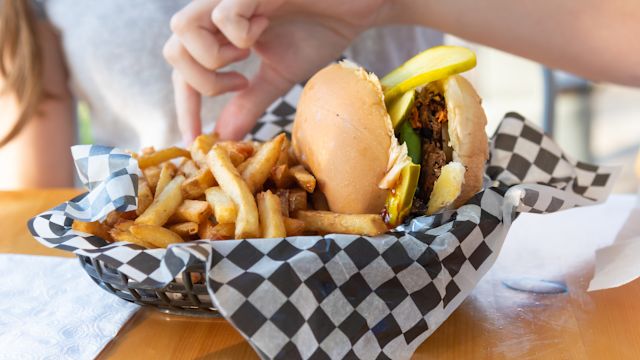Updated on January 26, 2026.
Calorie counts often seem to dominate our lives: We choose workouts based on how many calories they burn, shop for low-calorie foods at the grocery store, and tally our calories meal by meal. Still, people in the United States consume an average of 300 more calories each day than we did 30 years ago.
But do we really understand what calories do and don't do, and how they cause us to gain weight? Take this quiz to see how your knowledge stacks up.
1. True or False: Women trying to lose weight should eat no fewer than 1,200 calories a day
True. The lowest calorie level for weight loss that’s still generally safe for the average woman is 1,200 calories per day, says Elizabeth Somer, RD, author of 10 Habits That Mess Up a Woman's Diet. Extreme dieting on 1,000 calories or less is a recipe for failure. While you will probably lose weight at such a low level (depending on how long you stick to it), the weight will almost certainly come back. Plus, shedding pounds too quickly can throw your body chemistry off and increase the risk of heart problems or gallstones.
2. True or False: Most people have a pretty accurate idea of how many calories they consume
False. People typically underestimate how much they eat, sometimes by up to 700 calories a day. "But most of us tend to be off by about a third," Somer says.
3. True or False: Excess calories go straight to your hips
False. They go straight to wherever your genes tell them to. It could be your waist, it could be your chin, or it could be anywhere and everywhere, including your hips. But the issue is genetic, not caloric. A calorie is simply a measure of energy, and if you don't need that energy right away (to sprint for a bus or build new cells, for example), it's stored in the liver and muscles as glycogen. When those storehouses are full, excess calories are warehoused as fat in whatever areas your genes favor.
4. True or False: Fat calories contribute to weight gain faster than carb calories
True. Calories from fatty foods accumulate faster if the calories are excess calories, or more than your body needs. What accounts for the difference?
For starters, a gram of dietary fat contains more calories than an equal amount of carbohydrate—9 calories compared to 4 calories. So, your body gets more calories from eating fatty foods.
Meanwhile, it's relatively easy for your body to convert excess dietary fat into body fat; the process burns as little as 3 percent of the calories involved. But converting the calories in carbs and protein to fat is much more energy-intensive; it burns up to 23 percent of the calories in the process. That's why excess fat calories contribute to fat storage faster than excess carb calories.
But that doesn’t mean that all dietary fats are bad and all carbohydrates are good. The best way to moderate your calorie intake is to eat a nutritious diet with a healthy balance of all the major nutrient types. For an easy way to prepare healthy meals, try filling most of your plate with fruits or vegetables, part with healthy whole grains like brown rice and bulgur, and the rest with lean proteins such as chicken, fish, tofu, or beans.
You should also limit your intake of saturated fats, which often come from animal products like meat and full-fat dairy, because of their link to heart disease. A moderate amount of heart-healthy unsaturated fats, meanwhile—from sources like vegetable oils, fish, and nuts—are part of a well-rounded diet.
5. True or False: Calories eaten at night are more fattening than calories consumed during the day
False. Calories eaten at night aren't any more fattening, but they may be more easy to accumulate. During a jam-packed day, you may barely think about food. But when you get home, you might be tired, hungry and less mindful of the quality (and quantity) of the food and drink you consume. As a result, it may be easier to overeat after dark.







